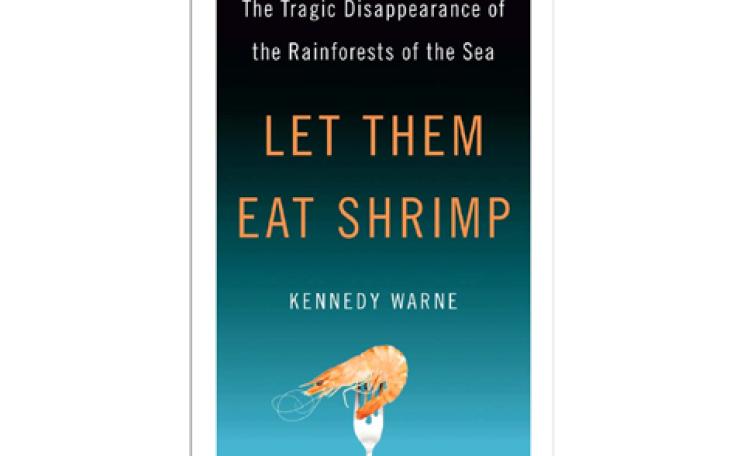The popularity of tropical shrimp – often marketed as scampi, giant shrimp, gambas or tiger prawns - is having a devastating impact on local communities in Bangladesh, reveals a new investigation produced in conjunction with the Ecologist's film partner.
Sales of frozen prawns have soared in recent years, eaten deep-fried, in stir-fries or as sushi.
Global production now exceeds 1.3 million tonnes a year and on the face of it provides much-needed trade for the poor exporting countries, such as Bangladesh.
But a new investigation reveals that far from being of economic benefit to Bangladesh, shrimp farming causes pollution, degradation of agricultural land and loss of mangrove ecosystems protecting coastal communities against storm floods.
These costs far exceed the value of the prawns and scampi produced for western consumers.
The prawn industry is already among the least sustainable fish produced with frozen prawns peeled and shipped around the world at great cost in terms of greenhouse gas emissions.
In Bangladesh fertile crop land has been flooded with waste from expanding prawn farms, while biodiverse-rich Mangrove forests, home to river dolphins and local fish supplies, have been cut down.
Prawn farmers were also found to be using a dangerous pesticide, banned in more than 150 countries around the world because of its toxicity to marine ecosystems and potentially consumers who eat products contaminated with it.
More than half of Bangladesh's prawns (55 per cent) are exported to the EU before being sold on to supermarkets, wholesalers and restaurants.
Campaign groups have called on consumers, shops and restaurants to stop buying and selling tropical shrimp.
'While it is easy to blame corrupt officials and weak enforcement...in reality the tropical shrimp industry, with all its multitude of problems, is ultimately driven and fuelled by consumer demand and by the marketing of restaurants, retailers and others,' says the Swedish Society for Nature Conservation, who funded the investigation.
'Where no shrimp are farmed, mangrove ecosystems and paddy fields can be restored. Abstaining from the prawn on the sushi plate contributes to preserving biodiversity and strengthening the rights of communities to livelihoods and decent lives,' it says.
The report names Manchester-based Seamark, the UK's leading importer and processor of shrimps, as one of the companies sourcing from traders linked to destructive practices in Bangladesh.
Seamark declined to comment on the allegations but on its website says it has, 'always been careful to source its raw materials from environmentally sustainable sources'.
| READ MORE... | |
 |
HOW TO MAKE A DIFFERENCE CAMPAIGN HERO: Khushi Kabir, empowering Bangladesh's downtrodden Khushi Kabir was nominated for the Nobel Peace Prize in 2005 for her work at Nijera Kori, which has helped organise over 175,000 landless people in Bangladesh's rural areas since 1980 |
 |
NEWS ANALYSIS Salmon farm threatens Scottish island of Eigg's green credentials The Isle of Eigg has won prizes for its use of renewable energy resources. But a proposed fish farm could ruin the eco-friendly reputation that the small island community has worked so hard to obtain, and the tourist appeal that comes with it |
 |
INVESTIGATION Selling Indonesia's coast for cheap prawns and profit In an exclusive investigation, the Ecologist Film Unit reveals the impact of Indonesia's plans to privatise its entire 90,000 km coastline |
 |
SPECIAL CONTENT EFU Film: Selling The Sea – revealing Indonesia’s little-known plans to privatise huge swathes of coastline for aquaculture In an exclusive investigation, the Ecologist Film Unit reveals the impact of Indonesia's plans to privatise its entire 90,000 km coastline |
 |
SPECIAL CONTENT EFU Film: Dwindling forests, dwindling futures – how forest dwellers being ignored by the Bangladeshi Government A new Ecologist-produced film - highlights how the rights of indigenous peoples and their sustainable use of natural resources are being ignored by the Bangladesh Government |








